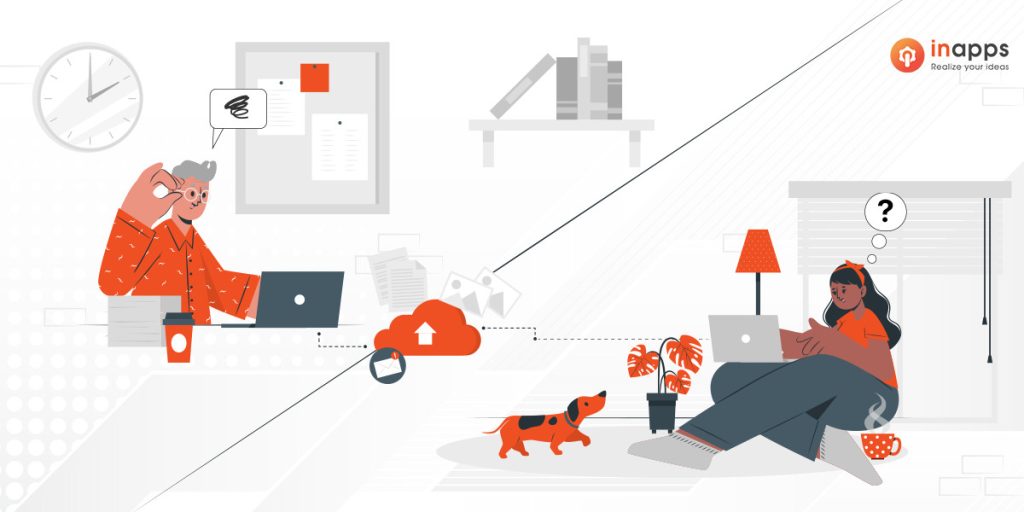- Home
- >
- Offshore News
- >
- 7 Signs That Your Freelance Developer Is Not The Right Fit
Hiring a freelance developer can transform your business. They bring specialized skills and flexibility, often working remotely to deliver your project. However, the remote nature of freelance work comes with its own set of drawbacks, especially when it comes to communication and meeting deadlines.
Poor communication can lead to misunderstandings about project requirements, causing delays and misaligned expectations. Similarly, missing deadlines due to various factors like time zone differences or inexperience can derail your project. It’s crucial to identify these Signs That Your Freelance Developer Isn’t Working Out before you commit.
1. Poor Communication
Your freelance developer will work mostly remote, so poor communication is a big sign that things won’t work out between you two. Good communication not only involves great English proficiency, but also quick task understanding and effective response. Freelance developers must possess good communication skills in order to understand the project requirements, so any misunderstandings and misaligned expectations won’t happen often.

Also, regular updates between you and your freelancers will take place often to track progress, identify issues early, so teammates can adjust to timelines or objectives. During these meetings, your freelancers must be able to talk about their work, any issues that they get stuck with or new innovative initiatives they may have in mind at ease. This way, the rest of the team can understand them perfectly without miscommunicated issues.
Poor communication from a freelance developer can significantly disrupt your project. It leads to misunderstandings about project requirements, causing the developer to deliver work that doesn’t meet expectations. This results in delays as the work needs to be redone. It also makes it difficult to track progress and identify issues early; as a consequence, problems escalate unchecked.
2. Missed Deadlines and Delayed Progress
Everything starts well, but soon, deadlines start slipping, and progress stalls. This is a major red flag when you work with freelance developer. Missed deadlines could due to time zone differences. To save costs, you hire your freelance developer who is often on the other side of the world. Coordinating meetings becomes a nightmare, and response times lag. For example, you send an urgent message at 9 AM, but it’s midnight for them. By the time they respond, valuable time has already been lost.
Also, if you freelance developer has little experience (even though they may claim to have years of experience), they might struggle with tasks that seem straightforward to seasoned professionals. Imagine asking for a complex feature; they might underestimate the time needed, leading to constant delays as they learn on the job.
3. Inconsistent Quality of Work
When a freelance developer’s work quality is inconsistent, it signals a problem. One day they deliver excellent code, and the next, it’s full of bugs. This inconsistency can cause delays and require additional resources to fix. One major reason could be the developer outsourcing parts of the work to less competent individuals. For example, they might hire cheaper subcontractors who don’t meet the same standards, resulting in fluctuating quality. Another reason could be a lack of focus, where the developer is juggling multiple projects, leading to rushed and subpar deliverables.
For example, if you need a stable feature for a product launch but receive something unreliable, it disrupts your plans and impacts your business’s reputation. Consistent quality is crucial for smooth progress and maintaining trust in the developer’s capabilities.
4. Overpromising and Underdelivering
Freelance developers might promise more than they can deliver to secure a project. Often, they aim to secure the project by impressing you with ambitious promises. They might lack experience, leading them to misjudge the time and effort required for complex tasks. Overconfidence can also play a role; they genuinely believe they can meet lofty goals but fail in execution.
They may commit to unrealistic deadlines or agree to add complex features without fully understanding the requirements. For instance, a developer might assure you they can complete a major update in two weeks but then fail to do so.
5. Poor Time Management
Poor time management is a common issue with freelance developers that can severely impact your project. Imagine you’ve set a deadline for a crucial feature, but the developer consistently starts tasks late and rushes through them. This behavior often results in subpar work and missed deadlines.
Several factors contribute to this problem. The developer might be juggling multiple projects, leading to divided attention and poor scheduling. They might also struggle with procrastination, failing to prioritize tasks effectively. Inexperience in estimating the time required for specific tasks can also lead to mismanagement.
To identify poor time management early, monitor their adherence to agreed timelines and the quality of their work. Frequent delays and rushed, error-prone deliverables are clear indicators. Regular check-ins and using project management tools can help you track progress and address time management issues before they escalate.
6. Lack of Proactivity
If your freelance developer lacks proactivity, they will mostly wait for instructions and only address issues upon requested. They rarely anticipates problems and suggests improvements right when they see one. For example, they might notice a potential bug but do nothing until it causes a major problem. This reactive approach can result in increased downtime and missed opportunities for optimizing your project.
7. Toxic Attitude
Imagine you’ve hired a freelance developer who, at first, seems promising. But soon, you notice a change. They become defensive when you offer feedback, reacting with hostility or dismissiveness. For example, when you suggest improvements, they argue instead of listening. They start blaming others for mistakes, refusing to take responsibility. This toxic behavior creates a negative atmosphere, disrupting team harmony and productivity.

Signs of a Toxic Attitude
- Defensive Reactions: They get hostile or dismiss feedback.
- Blaming Others: They never accept responsibility, always shifting the blame.
- Non-collaborative: They avoid team interactions and prefer to work alone.
To detect freelance developer with toxic traits, pay attention to their openness to feedback and questions from the beginning. Check their references, asking about their behavior in past projects. Implement a trial period to observe how they integrate with the team. Software outsourcing company where you hire them often offers a trial period of up to 1 month.
Once you know your freelance developers have red flags, you should provide regular, constructive feedback and offer support for improvement. Nobody is perfect. However, if things escalate, you could implement serious measures, like terminating the contract if necessary.
More like this:
Let’s create the next big thing together!
Coming together is a beginning. Keeping together is progress. Working together is success.




















